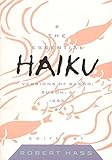I’d like to consider 2021 as a year of convalescence. Worldwide, cities have to regain normalcy and vivacity from lockdowns; people have to recover from the loss of their close ones, jobs, and social connections. Personally, I am trying to live with the loss of my grandma, an ongoing separation from my parents, and a lack of motivation to write.
Once again, I take shelter in literature.
The following three books have offered me the greatest comfort this year.
Dark Tales by Shirley Jackson
Had I not been commissioned to translate her works into Chinese, I wouldn’t have known the domestic horror elements in her stories originate from her real life. As an American woman in the mid-20th century, Jackson fulfilled the expectation of a housewife and mother. She was responsible for raising four children, cleaning, cooking, grocery shopping, and walking dogs. Her husband, Stanley Edgar Hyman, was a well-known literary critic at the time. He was frank about his philandering and insisted on sharing all the details with Jackson. While she struggled with terrible anxiety and depression, he sat at his desk and chewed over the state of American literature.
Reading the stories Jackson wrote in her later life, I don’t know which terrifies me more, her life or her writing? Several pieces in Dark Tales begin with the women protagonists’ impulses to leave home, murder their husbands, or surrender to their husbands’ deadly violence. Jackson showcased a rare brilliance in digging into the women’s psychology. Take “The Honeymoon of Mrs. Smith.” A neighbor warns the newlywed Mrs. Smith that her husband looks exactly like the serial wife killer in the newspaper. Not surprised at all, Mrs. Smith shows her husband’s nearly-empty drawer and closet to the neighbor. “I cannot leave him only because of my suspicion,” Mrs. Smith says. “But even if I find a knife in his coat pocket, what does it prove anyways?” Shirley seems to question how one can even know whom their partner is.
Take another story, “Louisa, Please Come Home.” Two years after she ran away from home, Louisa returns to meet her parents and sister. Her family—who have been looking for her through radios and newspapers—accuses Louisa of being a con artist. “Ask me questions,” Louisa pleads. “What does it matter?” her sister asks. “All the answers are in the newspaper.” A chill ran down my spine as I found that I, too, might not be able to prove who I was.
It would be ruthless to say that Jackson owed the depth of her writing to the torment of her marriage. As a reader, I only feel fortunate that her talent was undefeatable and that we get to see the real horror of being a particular kind of American wife and mother in the 1950s and ’60s.
Othello by William Shakespeare
In the fall semester, I took a seminar on Shakespeare with professor Rebecca Lemon at the University of Southern California. Professor Lemon drew our attention to particular key words and inspired us to see the texts through a different lens.
Among all the plays we revisited in that class, Othello horrified me the most. For a long period of time, most Shakespeare scholars claimed that Othello is not about race. But the tragedy has everything to do with race.
Iago, the villain, tries to make Othello believe the infidelity of his innocent wife. I am not surprised by how relentless Iago is to commit his crime. Nor am I astonished to see that Othello falls into Iago’s evil plot and kills Desdemona in the end. What saddens me is the fact that, by stepping into Iago’s trap, Othello fulfills the narrative the Venetians fabricate about the Moors, as jealous, lustful, violent, and full of witchcraft. The Venetians believed this in the beginning of the play and even more so after Desdemona’s end. When Othello realizes his mistake, his last request is “Speak of me as I am.” Unlike Hamlet who has his friend Horatio to recount the full story, Othello does not have anyone to represent him fairly.
Representation in today’s media is still questionable in many ways. But Othello does provide us with a rule of thumb: we have to speak of others as they are.
 The Essential Haiku: Versions of Basho, Buson, & Issa, translated from Japanese by Robert Hass
The Essential Haiku: Versions of Basho, Buson, & Issa, translated from Japanese by Robert Hass
I read the haiku by Basho, Buson, and Issa while I was in middle school in China. But this year, Kobayashi Issa never felt so close. Issa had an extremely miserable life. He lost his mother as a child. After his father remarried, Issa did not get along with his stepmother or stepbrother. At the age of 14, his father sent Issa to Edo to study. Issa spent decades drifting around until his father died. He thought he could finally come back to his hometown to live, but his stepbrother did not let go of their father’s estate. Even after the brothers reached an agreement with the help of a Buddhist monk, Issa’s later years continued to be turbulent. He lost his first wife and three children in infancy, had a brief second marriage, and suffered the burning down of his family house.
If you know nothing about his real life, Issa’s poems may strike you as if they were composed by a carefree person. “Don’t worry, spiders,/ I keep house/ casually.” “Mosquito at my ear—/ does he think/ I’m deaf?” “A huge frog and I/ staring at each other,/ neither of us moves.” His imagination seem so spontaneous, free, almost childlike. But it is because he understood being vulnerable that he felt great empathy and sympathy for all the critters in the world. He might be the only poet who advocated the existence of flies: “Look, don’t kill that fly!/ It is making a prayer to you/ By rubbing its hands and feet.”
Issa’s perhaps most famous haiku reads, “In this world/ we walk on the roof of hell,/ gazing at flowers.” If we ever find ourselves in a dark period of our lives, don’t forget that we always have flowers blooming around us.
More from A Year in Reading 2021 (opens in a new tab)
Do you love Year in Reading and the amazing books and arts content that The Millions produces year round? We are asking readers for support to ensure that The Millions can stay vibrant for years to come. Please click here to learn about several simple ways you can support The Millions now.
Don’t miss: A Year in Reading 2020, 2019, 2018, 2017, 2016, 2015, 2014, 2013, 2012, 2011, 2010, 2009, 2008, 2007, 2006, 2005
The post A Year in Reading: Jianan Qian appeared first on The Millions.











